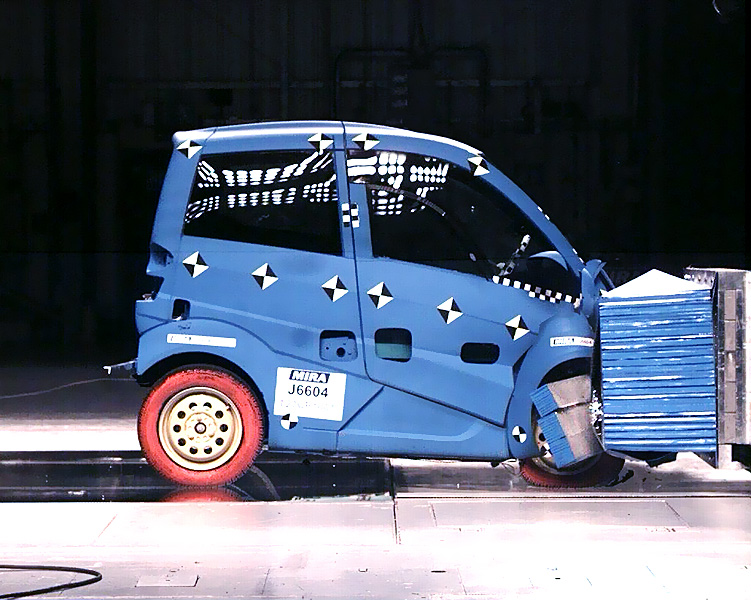Mitsubishi are the latest automaker to release details of their model being crash tested. A European-spec "i", still known as the i-MiEV in Europe, has been tested by the Allgemeiner Deutscher Automobil-Club (ADAC), Germany and Europe's largest automobile club. ADAC are often responsible for some of the earliest crash test results, and often cover models not tested by the more well-known Euro New Car Assessment Program (Euro NCAP).
The ADAC has scored the i-MiEV highly, noting that as soon as the car had recognised an impact, the high-voltage elements of the powertrain were immediately shut off and the 88-cell lithium-ion battery remained undamaged.
As with the 2011 Volvo C30 electric car featured at the recent Detroit Auto Show, the i-MiEV was subjected to a 40 mph, 40 percent offset frontal crash test, and another was tested for rear impact strength using a 3,000 pound movable barrier at just under 50 miles per hour with a 70 percent offset.
Despite the relatively small size of the Mitsubishi, it was given high ratings in both tests with no worries over the integrity of the electric system. The test also bodes well for the U.S. model, which is slightly larger.
These results echo Volvo's own findings with the electric C30, which Volvo confirmed was equally as safe as their gasoline variant.

Gordon Murray T.27 crash test
It's great to see that manufacturers are taking the issue of safety with their new EVs as seriously as other areas of their engineering, and hopefully it will go some way to reassuring consumers' concerns over crashing in a high-voltage vehicle.
[Mitsubishi, AllCarTech]













